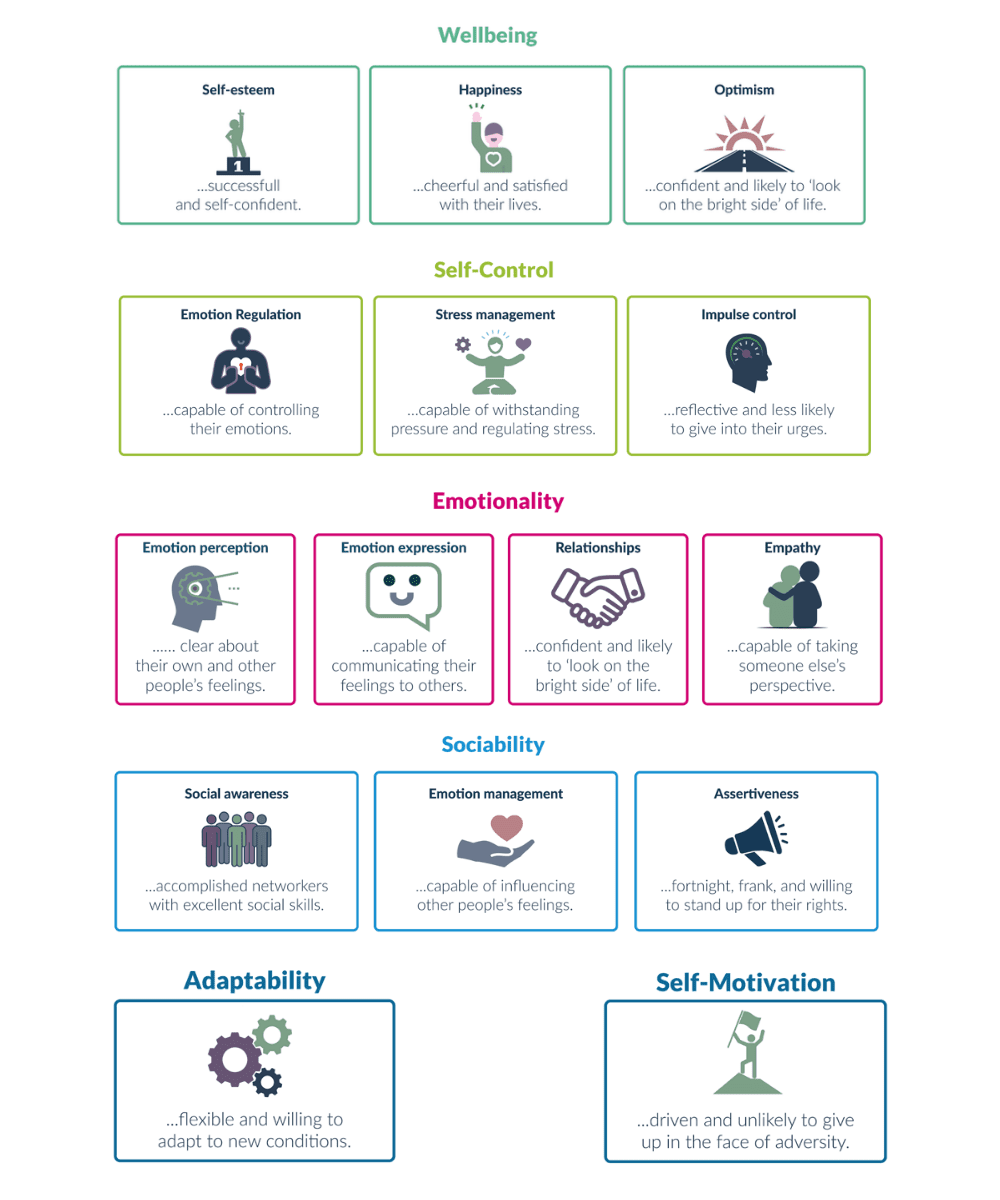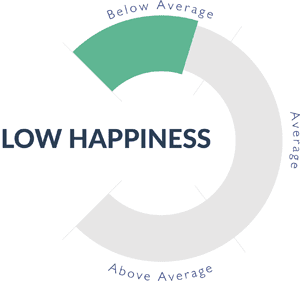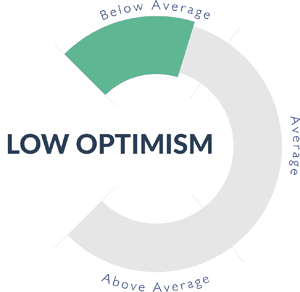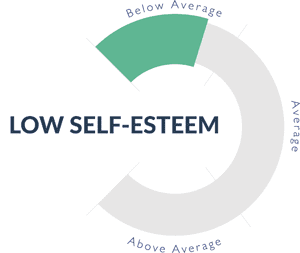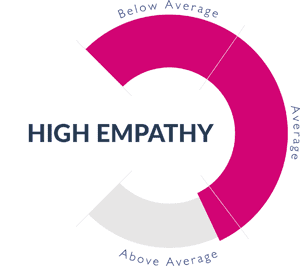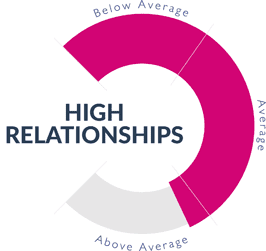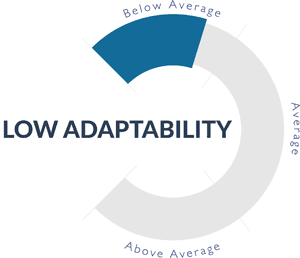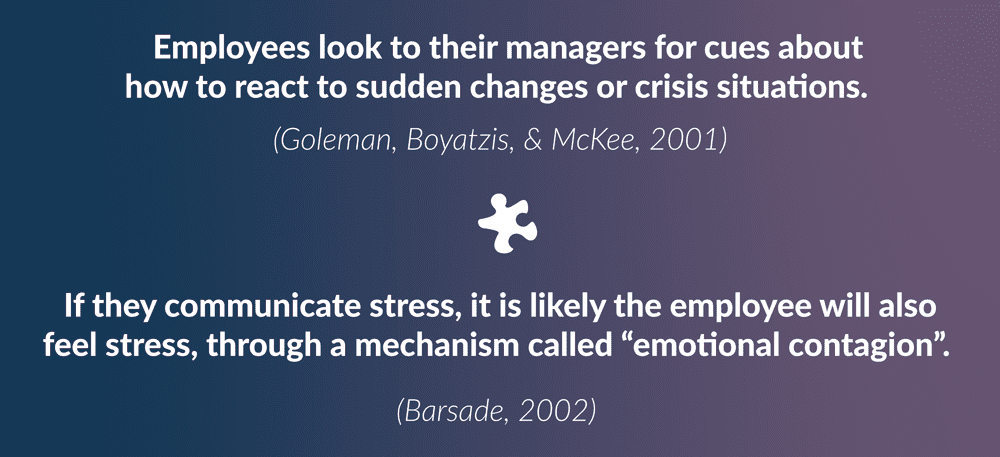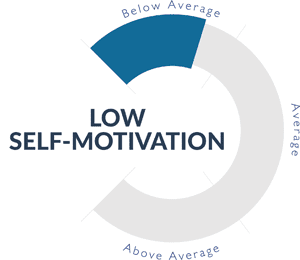Even without the challenge of COVID-19, remote working is fast becoming the norm for companies of all types around the world. While many consider remote working to be positive, or even a workplace benefit, it is something that is also viewed with some degree of skepticism by others. Some individuals thrive in a remote working environment, whilst others seem to struggle to stay motivated. Understanding individual differences can help managers and team members keep each other engaged, enthusiastic and focused when working from home.
So how does Emotional Intelligence help with this challenge?
Learning about our own personalities and emotional intelligence is a great way to better understand how we approach work, as well as keep ourselves motivated. Previous analysis revealed that employees’ different levels of emotional intelligence caused them to be naturally more or less dispositioned to feel engaged at work. So, since people are engaged differently at work, we should take this into account when the workforce is working from home, exploring the challenges some may have to stay engaged in a home office, and how best to support them.
The Trait Emotional Intelligence Questionnaire (TEIQue) measures how someone understands and manages their own emotions, as well as how they understand and manage other people’s emotions (Petrides, 2009). There are no right or wrong scores on the TEIQue, both high and low scorers on the traits have both positive and negative aspects.
TEIQue measures (Petrides, 2009):
Different levels of different facets of emotional intelligence will create differing reactions and challenges among employees in the new working environment, but there are ways to best manage them so that they remain engaged and motivated throughout this time.
Low happiness
Research has shown that with a lack of face-to-face interaction, employees might feel that their managers don’t understand their needs from a distance, resulting in less productivity and less supportive behaviours (Golden, 2006). Transitioning to work from home, individuals with lower scores in Happiness may be feeling less content and cheerful with life at the moment as well as more worried about the current situation. At the same time, they may also feel their mood is a reasonable response to the difficulties of COVID-19. Viewing life in a less upbeat way can allow them to see the worst that might happen and avoid it.
What to do?
- Advise low scorers to not spend too much time worrying about things they cannot control
- Describe good things that are happening
- Understand what makes them feel happy
- Ensure they do things that make them happy in their own environment
Low optimism
Generally, individuals with Low Optimism may struggle to see the positives of a new working environment.
What to do?
- Talk through what makes you feel optimistic about remote working
- Talk about the opportunity remote working brings them
- Team them up on projects with people that have high optimism
Low self-esteem
Individuals with low scores will set high – and potentially unachievable – standards for themselves, and when unable to reach them, they can be very harsh on themselves. Research has shown that home demands can make working from home harder (Kossek, Lautsch, & Eaton, 2006). There will be some projects they cannot complete or cannot complete to the high standards they have for themselves. This might create feelings of stress and disappointment.
What to do?
- Give them time to think a project through
- Tell them it’s ok to say ‘no’ to new tasks occasionally
- Identify how to break larger tasks apart into small wins – to make the employee still feel successful and like they are making progress
High empathy
These individuals feel other people’s emotions and appreciate other people’s feelings; able to take their views into account. This will be difficult in the current environment as they will be hyper-aware of others’ stress and worries, so this will make it hard for them to shut it out and focus on their own emotions and well-being.
What to do?
- Encourage them to take care of their own emotions and well-being
- Schedule time for them to be away from the desk for rest, exercise and socialising
High relationships
Individuals with high scores in Relationships like to invest time and energy in maintaining positive relationships. Such relationships ensure that they have a circle of people on whom they can rely for a variety of things: information, social enjoyment and emotional support in difficult circumstances.
What to do?
- Regular check-ins
- Virtual team meetings through video calls
- Ensure they are allocating separate time to work, as well as time to check up on friends
Low adaptability
A general aversion to change is to be expected in individuals like this, so they may take more time and need more support to adapt to a new way of working – any sudden change in routine will be hard to cope with, but one caused by a global pandemic is likely to cause an extreme reaction.
What to do?
- Encourage employees to replicate their work routine when working remotely
- Show them that the change is OK
- Provide them with confidence and positivity about what the change might bring
Low self-motivation
In a remote working environment, when no immediate reward or satisfaction from sharing a job well done is available, or even without the constant presence of a managerial figure, they can struggle with motivation to get work done, which can cause procrastination and lack in productivity.
What to do?
- When your employee finishes a task or achieves a goal, encourage them to reward themselves
- Encourage them to work with others
- Explain to them that companionship and support can be motivating as well as provide opportunities for socialising and swapping ideas
Written by Thomas International

